Accommodation Travel
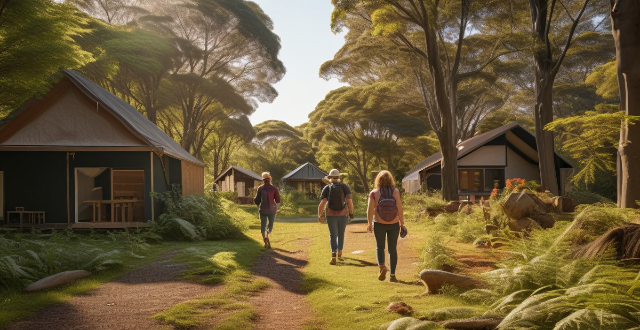
What role do tourists play in contributing to climate change through their travel activities ?
Tourism, while beneficial economically and culturally, contributes significantly to climate change due to carbon emissions from various travel activities. These include air travel, land travel, accommodation, activities, food and beverage choices, shopping habits, and packing and planning decisions. To mitigate this impact, tourists can offset emissions, choose sustainable travel options, stay in eco-friendly accommodations, participate in responsible tourism, reduce waste, support local produce, shop mindfully, plan ahead, advocate for change, and educate others on responsible travel practices.

What are some tips for finding ethical and sustainable accommodation options while traveling ?
When traveling, finding ethical and sustainable accommodation options is crucial to promote responsible tourism that benefits the environment and local communities. Here are some tips to help you make eco-friendly choices: 1. Research before you go by looking for certifications, reading reviews, and checking the website of potential accommodations for their sustainability practices. 2. Choose eco-friendly options like eco-lodges or eco-hotels that prioritize sustainability, or consider homestays to support local communities and reduce your carbon footprint. 3. Support local communities by choosing locally owned accommodations and participating in community tourism projects offered by some properties. 4. Minimize your environmental impact by reducing water usage, conserving energy, and limiting plastic usage during your stay. By following these tips, you can contribute to a more responsible form of tourism that benefits both the environment and local communities.

How can I save money on accommodation while traveling ?
Saving money on accommodation while traveling requires careful planning and research. Here are some tips: 1. **Choose Budget-Friendly Options** such as hostels, guesthouses, and budget hotels. Consider staying in a vacation rental or apartment for longer stays. Pros include lower cost, opportunities to meet other travelers, and often central locations. Cons may be lack of certain amenities, noisy or crowded conditions, and varying quality. 2. **Travel Off-Peak** to take advantage of lower rates during off-peak seasons or midweek. Pros include lower rates, fewer crowds, and easier access to deals and discounts. Cons may be limited hours at attractions, less than ideal weather, and limited availability of certain accommodation types. 3. **Negotiate and Look for Deals** by contacting hotel staff or searching online for discounts. Pros include potential savings on already discounted rates, exclusive promotions, and the ability to customize your stay. Cons may require flexibility in travel dates and destinations, restrictions or blackout dates on deals, and varying quality of rooms and services. 4. **Use Loyalty Programs** offered by hotel chains or booking sites to earn points for free nights or upgrades. Pros include earning rewards for future stays, exclusive member rates and benefits, and the possibility of room upgrades and other perks. Cons may require multiple stays to accumulate enough points, rewards may have expiration dates or restrictions, and some programs may charge fees or have complex rules.

What are some tips for finding cheap flights and accommodations ?
Finding cheap flights and accommodations can be a daunting task, but with the right strategies, you can save money and still have a great travel experience. Here are some tips to help you find affordable options: ## 1\. Be Flexible with Your Travel Dates One of the best ways to find cheap flights and accommodations is to be flexible with your travel dates. Prices often fluctuate depending on the time of year, day of the week, and even the time of day. If possible, try to travel during off-peak seasons or midweek when prices tend to be lower. ## 2\. Book in Advance or Last Minute Booking your flight and accommodation well in advance can often result in significant savings. However, if your schedule allows it, booking last minute can also lead to great deals as airlines and hotels look to fill empty seats and rooms. ## 3\. Use Flight Aggregator Websites Flight aggregator websites like Skyscanner, Kayak, and Google Flights allow you to compare prices across multiple airlines and find the best deals. These sites often have features that enable you to set price alerts or search for flights from nearby airports, which can sometimes be cheaper. ## 4\. Consider Alternative Airports Flying into an alternative airport near your destination can sometimes result in lower airfare. For example, flying into Newark instead of JFK in New York City might save you money on your flight. ## 5\. Sign Up for Newsletters and Loyalty Programs Signing up for newsletters and loyalty programs from airlines and hotels can provide you with exclusive discounts and promotions. These offers can help you save money on future bookings. ## 6\. Use Credit Card Rewards If you have a credit card that offers travel rewards, consider using those rewards to pay for your flights or accommodations. This can significantly reduce the cost of your trip without having to spend additional money out of pocket. ## 7\. Look for Package Deals Sometimes booking a flight and hotel together as a package deal can be cheaper than booking them separately. Travel agencies and online booking platforms often offer package deals that include both elements of your trip at a discounted rate. ## 8\. Avoid Peak Travel Seasons Traveling during peak seasons like summer or holidays can be more expensive due to high demand. If possible, try to plan your trip during off-peak seasons when prices are generally lower. ## 9\. Use Budget Airlines and Accommodations Budget airlines and accommodations can offer significant savings compared to their full-service counterparts. While they may not provide all the amenities of more expensive options, they can be a great way to save money on your trip. ## 10\. Negotiate with Hotels Directly Calling hotels directly and asking about any available discounts or promotions can sometimes result in better rates than booking online. It's always worth asking if there are any unadvertised deals available.
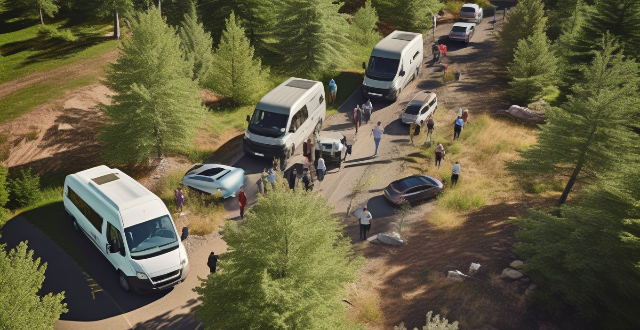
What does a typical travel insurance cover ?
Travel insurance typically covers medical expenses, trip cancellation and interruption, baggage loss and delay, accidental death and dismemberment, and emergency assistance services. Optional extras may include coverage for sports and adventure activities, rental car damage, and travel delay. It's important to consider the specific needs of your trip when selecting a policy and to carefully read the details to understand coverage limits and exclusions.

Are there any food festivals or events happening during my travel dates ?
The text is a comprehensive guide on how to find food festivals or events during one's travel dates. It outlines five key steps: checking local event calendars, using social media, asking locals or accommodation staff, visiting tourist information centers, and checking event listing websites. The text also provides examples of popular food festivals worldwide such as Tokyo Ramen Festival, Smorgasburg, Salon del Gusto, and Sydney Seafood Boil. It concludes by emphasizing the importance of researching in advance to enhance one's travel experience through food festivals and events.
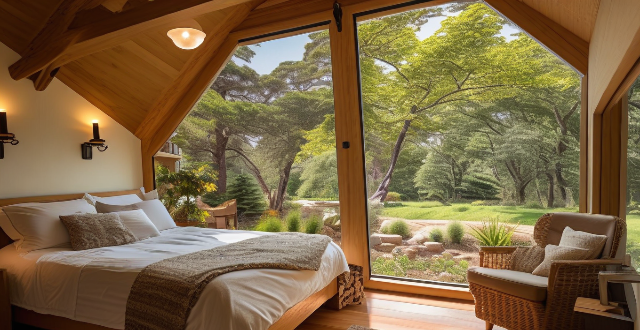
How can I find affordable accommodations while backpacking in Europe ?
Backpacking through Europe can be an affordable adventure with the right accommodation choices. Options include hostels for social, budget-friendly stays; Couchsurfing for cultural immersion and free lodging; camping for outdoor enthusiasts on a tight budget; Airbnb for a homey feel at various price points; budget hotels for more comfort and privacy; and house-sitting for unique experiences in exchange for caretaking duties. Each option has its pros and cons, so it's important to consider your preferences and budget when planning your trip. By combining different types of accommodations, you can save money while still enjoying your European backpacking adventure.

What are some budget-friendly travel destinations ?
This text provides a summary of budget-friendly travel destinations around the world, focusing on Southeast Asia, Central America, Eastern Europe, and Africa. It includes tips for saving money while traveling, such as researching deals, cooking your own meals, using public transportation, staying in hostels or using Couchsurfing, and traveling slowly to reduce transportation costs within a region.

Do tennis training camps provide accommodation and meals for participants ?
Tennis training camps offer a variety of services, including accommodations and meals. Residential camps typically provide dormitory-style accommodations with shared bathrooms and three meals per day in a cafeteria or dining hall on campus. Non-residential camps do not provide accommodations or meals for participants, so participants must arrange their own lodging and food options.
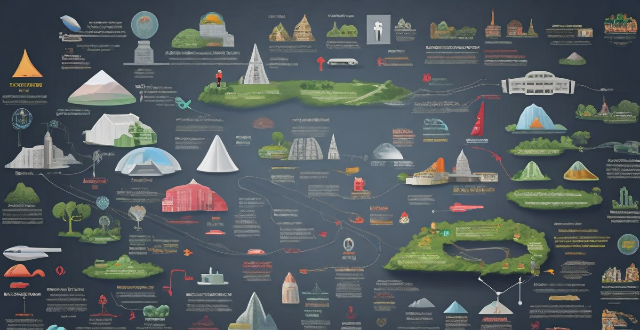
How much does travel insurance usually cost ?
The cost of travel insurance can vary greatly depending on factors such as destination, duration of trip, coverage level, and individual characteristics like age and health condition. To find the best policy for your needs, compare policies from different insurers, look for discounts, consider annual plans if you travel frequently, and review exclusions and limitations carefully.

How can I stretch my travel budget by staying in hostels or Airbnb rentals ?
Traveling can be expensive, but staying in hostels or Airbnb rentals can help save money. Here are tips on choosing the right accommodation, maximizing savings, being mindful of extra fees, and enjoying your stay.

How can I find the best deals for a luxury vacation ?
Finding the best deals for a luxury vacation requires research, flexibility, and knowing where to look. Here's a guide to help you plan your dream holiday without breaking the bank: 1. **Identify Your Luxury Destination**: Consider your preferences, research top destinations, and consult with travel agents. 2. **Set Your Budget**: Determine your total budget, be realistic about spending, and define what luxury means to you. 3. **Timing is Everything**: Travel during off-peak seasons or take advantage of last-minute deals. 4. **Use Resources Wisely**: Compare prices on OTAs, book directly through hotel websites, or use high-end travel agents. 5. **Negotiate and Upgrade**: Communicate your intent, leverage credit card perks, and politely ask for extras. 6. **Be Prepared to Splurge (If It’s Worth It)**: Invest in once-in-a-lifetime experiences and prioritize quality over quantity. By following these steps, you can find incredible deals for your luxury vacation without compromising on the opulence you desire.
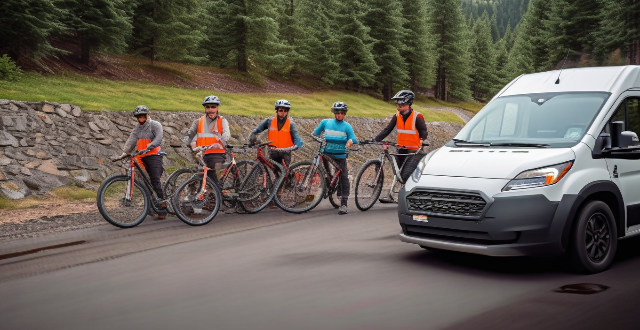
How do I plan a self-drive tour through the Australian outback ?
Planning a Self-Drive Tour through the Australian Outback requires careful consideration of vehicle selection, route planning, accommodation, supplies, safety measures, legal requirements, and cultural respect. Essential steps include choosing an appropriate vehicle, booking accommodations in advance, packing emergency supplies, checking weather conditions, informing others about your itinerary, and familiarizing yourself with local customs. Popular routes such as The Red Centre Way, The Savannah Way, and The Explorer's Way offer unique experiences and breathtaking landscapes. Proper preparation ensures a safe and memorable adventure through Australia's vast outback.
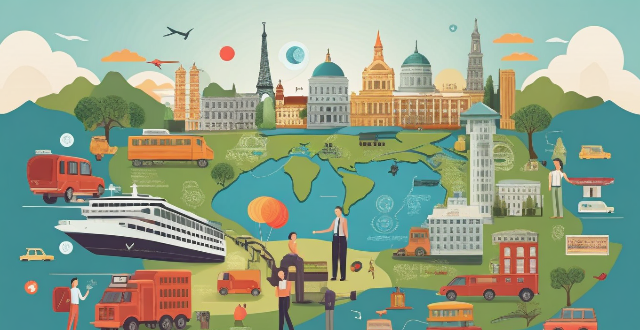
What are the benefits of participating in adventure travel activities ?
Adventure travel activities offer various benefits that positively impact physical, mental, and emotional well-being. These activities improve cardiovascular fitness, muscle strength, and weight management. They also reduce stress, boost self-confidence, and enhance creativity and problem-solving abilities. Adventure travel activities foster social interaction, personal growth, and improved mood and happiness.
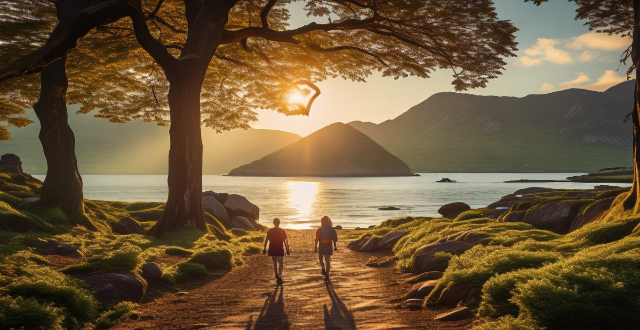
What should female travelers do in case of emergency abroad ?
Female travelers should prepare for emergencies abroad by researching their destination, having a travel plan, registering with their embassy, preparing an emergency kit, and learning basic language skills. In case of an emergency, they should assess the situation, seek help, take protective measures, and communicate with loved ones. After dealing with the immediate emergency, they should seek medical attention, report the incident, and reflect on their response. Additional tips include trusting their instincts, considering travel insurance, and staying connected.
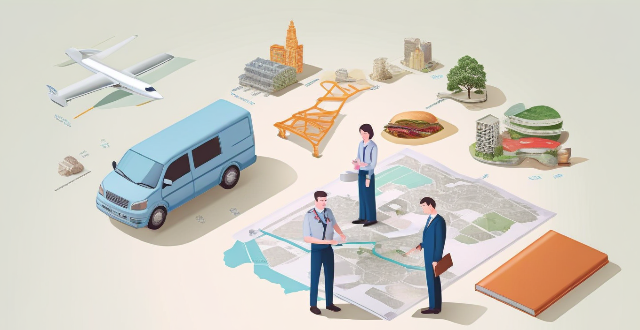
Is there an age limit for buying travel insurance ?
Is there an age limit for buying travel insurance? Most providers do not impose any restrictions based on age, but some policies may have specific requirements or limitations regarding age. When purchasing travel insurance, consider factors such as coverage options, pre-existing medical conditions, adventure sports coverage, cost, and reputation.

Can I buy travel insurance for someone else, like my parents or children ?
The article discusses the possibility of buying travel insurance for someone else, such as family members. It highlights the importance of understanding the specific requirements and restrictions associated with this process. The text provides a step-by-step guide on how to purchase travel insurance for someone else, emphasizing the need to choose the right policy that fits the insured person's needs and provides adequate coverage for their trip.

What are the best budget travel tips for backpackers ?
Backpacking is a budget-friendly way to explore the world. Here are some tips to help you save money while traveling: plan ahead, choose cheaper destinations, use public transportation, stay in hostels or couchsurf, cook your own meals, travel off-season, use travel apps and websites, carry a water bottle, shop at local markets, and be open to new experiences.
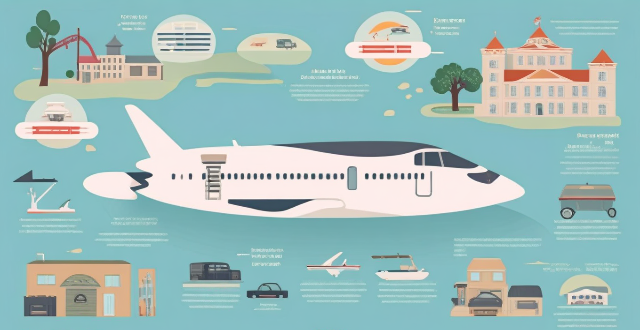
How do I ensure my luxury vacation is truly tailored to my preferences ?
To ensure a truly tailored luxury vacation, one should start by defining their travel goals and budget. Researching and selecting a reputable travel agent or planner who specializes in customized luxury vacations is crucial. Clear communication of expectations and openness to suggestions are key during the planning process. Personalizing the itinerary with unique experiences and reviewing all details before finalizing plans are important steps. Enjoying the journey and providing feedback after the trip can enhance future vacations.
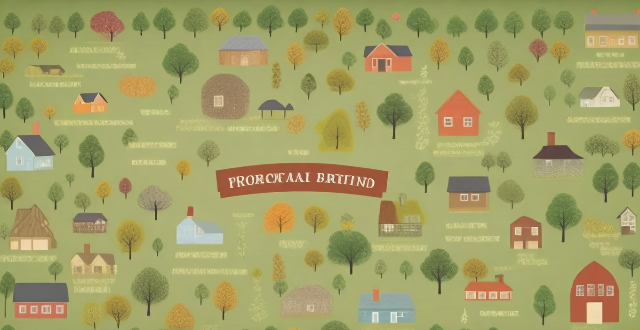
What are the most affordable domestic travel destinations ?
The text provides a summary of the most affordable domestic travel destinations, highlighting four main categories: national parks, small towns and villages, off-season destinations, and budget-friendly cities. Each category offers unique advantages such as natural beauty, authentic experiences, lower prices, and free attractions. Examples are given for each category, including Yellowstone National Park in the U.S., Sedona, Arizona, Florida during summer, Budapest, Hungary, and more. The text concludes by encouraging readers to explore these options for an unforgettable journey without breaking the bank.

Can I purchase travel insurance after booking my trip ?
The article discusses the possibility of purchasing travel insurance after booking a trip. It emphasizes that buying travel insurance early provides more comprehensive coverage, peace of mind, and potentially better prices. To purchase travel insurance after booking, one should research different policies, contact their travel agent or insurance company, provide relevant information, read the policy details carefully, and keep documentation safe. The article concludes that buying travel insurance early is generally recommended for optimal coverage and peace of mind during travels.

How long does it take to train for a space travel mission ?
This article discusses the various aspects of training for a space travel mission, including physical, mental, and technical training. It highlights the duration of each type of training and emphasizes the importance of thorough preparation to ensure the safety and success of the mission.

How can I stay safe during adventure travel activities ?
Adventure travel activities can be exciting and thrilling, but they also come with certain risks. To ensure your safety during these activities, it's important to take necessary precautions and follow some basic guidelines. Here are some tips on how to stay safe during adventure travel activities: 1. Research and plan ahead before embarking on any adventure travel activity. Check the weather conditions, terrain, and potential hazards. 2. Choose reputable operators for your adventure travel activity. Look for operators that are licensed, insured, and adhere to safety standards. 3. Follow safety guidelines provided by the operator during the activity. Wear protective gear such as helmets, harnesses, or life jackets. 4. Make sure you are physically fit and healthy enough to participate in the adventure travel activity. If you have any pre-existing medical conditions or injuries, consult with a doctor beforehand. 5. Pack essential gear and supplies for the adventure travel activity, including appropriate clothing, footwear, sunscreen, insect repellent, and first aid kit. 6. Stay alert and attentive during the adventure travel activity. Keep an eye out for potential hazards such as uneven terrain, loose rocks, or changing weather conditions. 7. Use common sense and trust your instincts during the adventure travel activity. If something feels too risky or dangerous, don't hesitate to back out or seek assistance from the guides or other participants. By following these tips, you can minimize the risks associated with adventure travel activities and enjoy a safe and memorable experience.

Is it worth buying travel insurance for domestic trips ?
The article discusses the importance of travel insurance for domestic trips. It suggests that while it may not always be necessary, it can provide an additional layer of protection and peace of mind, especially for those embarking on adventurous or expensive trips. The article provides a list of key points to consider when deciding whether to purchase travel insurance, including risk assessment, coverage details, cost analysis, personal circumstances, and peace of mind. It also lists the benefits of travel insurance for domestic trips, such as medical coverage, trip interruption/cancellation, baggage loss/theft, emergency evacuation, and accidental death and dismemberment. The article concludes by suggesting that the decision to buy travel insurance depends on various factors such as the nature of the journey, existing coverage, and personal preferences.

Can you suggest some great iPhone apps for travel ?
The text provides a summary of iPhone apps that can be beneficial for travelers. These include TripIt for organizing travel plans, Google Maps for navigation and real-time traffic updates, CityMaps2Go for offline maps and travel guides, XE Currency for currency conversion, Duolingo for language learning, PackPoint for creating customized packing lists, and WhatsApp for secure messaging and staying in touch. These apps can help travelers plan their trips, navigate unfamiliar locations, manage their budgets, learn new languages, pack appropriately, and stay connected with friends and family.
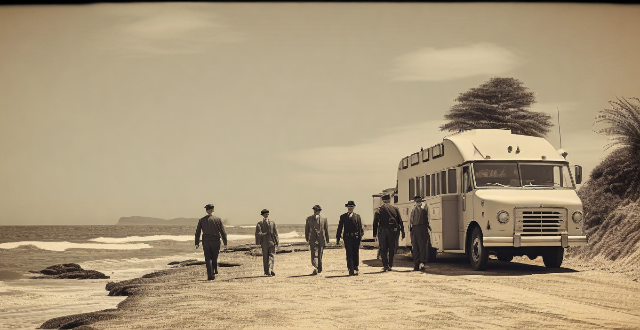
Will travel insurance cover me if I get sick while abroad ?
Travel insurance can cover travelers if they get sick while abroad, but coverage depends on the policy's terms and conditions. Factors to consider include coverage limit, deductible, pre-existing conditions, exclusions, emergency evacuation/repatriation, and claims process. When choosing a travel insurance policy, assess your needs, compare policies, read reviews, purchase early, and consult a professional if necessary.

Who are the major companies involved in commercial space travel ?
Commercial space travel has become a reality with the advancements in technology, and several companies are making significant contributions to the industry. Major companies involved include SpaceX, Blue Origin, Virgin Galactic, Boeing, and Sierra Nevada Corporation (SNC). These companies are developing reusable launch vehicles and reliable rocket engines, as well as spacecraft designed to carry cargo and humans to and from low Earth orbit destinations such as the International Space Station. Their unique technologies and innovations aim to make space travel more accessible and affordable for both scientific research and tourism purposes.
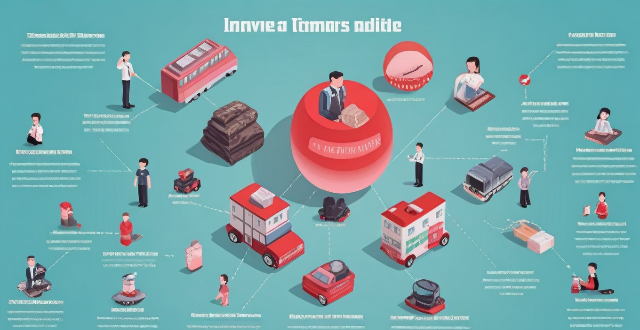
How do I compare different travel insurance policies ?
The article provides a comprehensive guide on how to effectively compare different travel insurance policies. It outlines four key steps: determining needs, checking coverage and benefits, comparing prices and deductibles, and reading reviews and asking for recommendations. The article emphasizes the importance of considering factors such as destination, duration, activities, health, and budget when determining needs. It also highlights the importance of looking for policies that provide comprehensive coverage for medical expenses, trip cancellation and interruption, baggage loss and delay, emergency evacuation and repatriation, and travel assistance services. Finally, it suggests comparing prices and deductibles and seeking out reviews and recommendations from others to make an informed decision. Overall, the article offers valuable insights into the process of selecting the right travel insurance policy.

How do sports event organizers manage logistics such as transportation, accommodation, and catering for athletes and officials ?
Managing logistics for sports events involves transportation, accommodation, and catering for athletes and officials. Sports event organizers arrange airport transfers for athletes and officials arriving from different locations and provide shuttle services between the event venue, hotels, and training facilities. They also allocate sufficient parking space near the event venue and collaborate with local authorities to enhance public transportation options during the event. For accommodation, they negotiate group rates with nearby hotels and book rooms in advance for athletes and officials, considering their preferences such as single or double occupancy rooms, smoking or non-smoking rooms, and special dietary requirements. They also provide information about nearby hotels and their availability on the event website or through a dedicated hotline and establish partnerships with hotels to offer discounted rates to spectators attending the event. In terms of catering, they create meal plans tailored to the nutritional needs of athletes and officials, address any dietary restrictions or allergies by offering customized meal options, set up concession stands at strategic locations within the event venue to cater to the needs of spectators, and provide catering services with a wider selection of food and beverages for premium seating areas or VIP lounges. Overall, managing logistics for sports events requires careful planning, coordination, and execution to create a seamless experience for all involved parties.

What are the best adventure travel destinations ?
Adventure travel is a great way to explore the world and experience new things. Here are some of the best adventure travel destinations: 1\. New Zealand: Known for its stunning landscapes and outdoor activities, including hiking, skiing, and kayaking. 2\. Costa Rica: Offers lush rainforests, volcanoes, beaches, and top activities such as surfing, zip-lining, and whitewater rafting. 3\. Iceland: A land of fire and ice, with glaciers, volcanoes, hot springs, and top activities like whale watching, glacier hiking, and snowmobiling. 4\. Nepal: A trekker's paradise, with towering Himalayan peaks and diverse landscapes, offering activities like trekking, paragliding, and whitewater rafting. 5\. Patagonia (Argentina and Chile): Known for its rugged landscapes and outdoor adventures, including hiking, mountain biking, and kayaking.